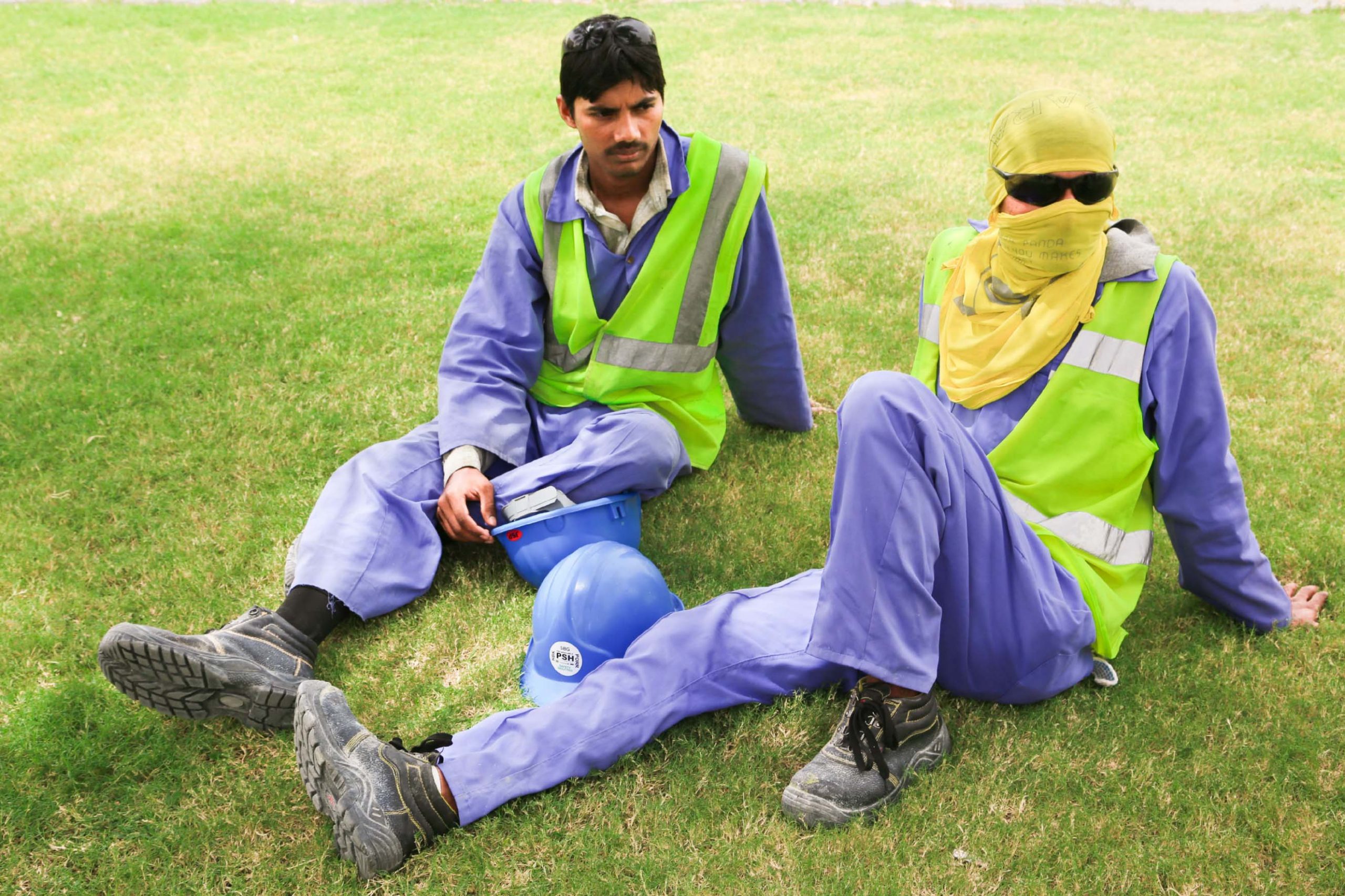
Blue-collar expats in Qatar will be soon be quizzed in detail about their living and working conditions as part of a new survey set to start later this year.
Qatar University‘s Social and Economic Survey Research Institute (SESRI) is setting up and will run what will be the state’s first workers’ welfare index, which aims to give a “comprehensive picture” of the lives of low-paid guest workers in the state, the university announced yesterday.
Researchers met earlier this week with government officials, including the Minister for Labor and Social Affairs Dr. Abdullah bin Saleh Al Khulaifi, as well as academic and policy experts, to discuss the scope of the index.
Speaking at the start of the closed-doors workshop, Al Khulaifi said the index was part of a state-wide effort to improve workers’ conditions, adding that Qatar was committed to protecting them and providing “the best living standards,” QNA reported.
Approximately 1,000 lower-income workers who live in communal housing such as labor camps will be interviewed either over the phone or in person about issues including their physical and mental health, working environment and living conditions.
SESRI Director Dr. Darwish Al-Emadi said the aim of the survey was to help improve conditions for the hundreds of thousands of blue-collar workers living in Qatar.
“We look forward to the outcomes and recommendations that will emerge from this survey, which will help us enhance guest workers’ living and working conditions,” he said in a statement.
Questions
The list of questions respondents will be asked is still under discussion, but will likely include issues such as whether they keep their own passport or if it is held by their employer, and what their housing is like.

Although it is illegal for an employer to hold an employees’ passport, SESRI research program manager [dropcap][/dropcap]Justin Gengler said that previous surveys of lower-income workers found that many had consented to this practice due to a lack of security in their shared accommodation.
“The situation can be nuanced, which is what we want to explore in more depth,” Gengler added.
While full details of the index methods are still being confirmed, Gengler said the index will be tabulated regularly – every six months to a year – in order to assess whether conditions for workers is improving or deteriorating, and the main areas of concern.
It is expected to start around September this year and will give overall scores, then give further detail in sub-sections such as health or living conditions, he added.
As Qatar’s lower-paid workforce is expected to grow to meet the deadlines of its ongoing infrastructure projects, data from the survey will help academics and policy makers to see how changes to the law actually affects workers over time.

For example, they can see if the changes to the kafala sponsorship law (No. 21 of 2015 regulating the entry, exit and residency of expatriates) which is set to come into force at the end of this year, benefit workers and if so, how.
“It’s no secret that Qatar has had criticism of its workers’ rights. Reports have mostly been based on anecdotal impressions – a journalist going down to a labor camp and finding some workers who haven’t been paid, or organizations putting out information about how well they treat their workers,” Gengler said.
He continued: “This index should be something objective and reliable which will hopefully reflect the policy and legal changes that have been made in the country, and are planned for the future. The results should show what is working and what needs more scrutiny.”
The surveys will be undertaken in multiple languages and will include a nationally representative sample of interviewees.
Asked whether he anticipates issues with workers not getting permission to talk to researchers, Gengler said: “We have done smaller (scale) surveys of workers before and that hasn’t been a problem.”
Thoughts?







